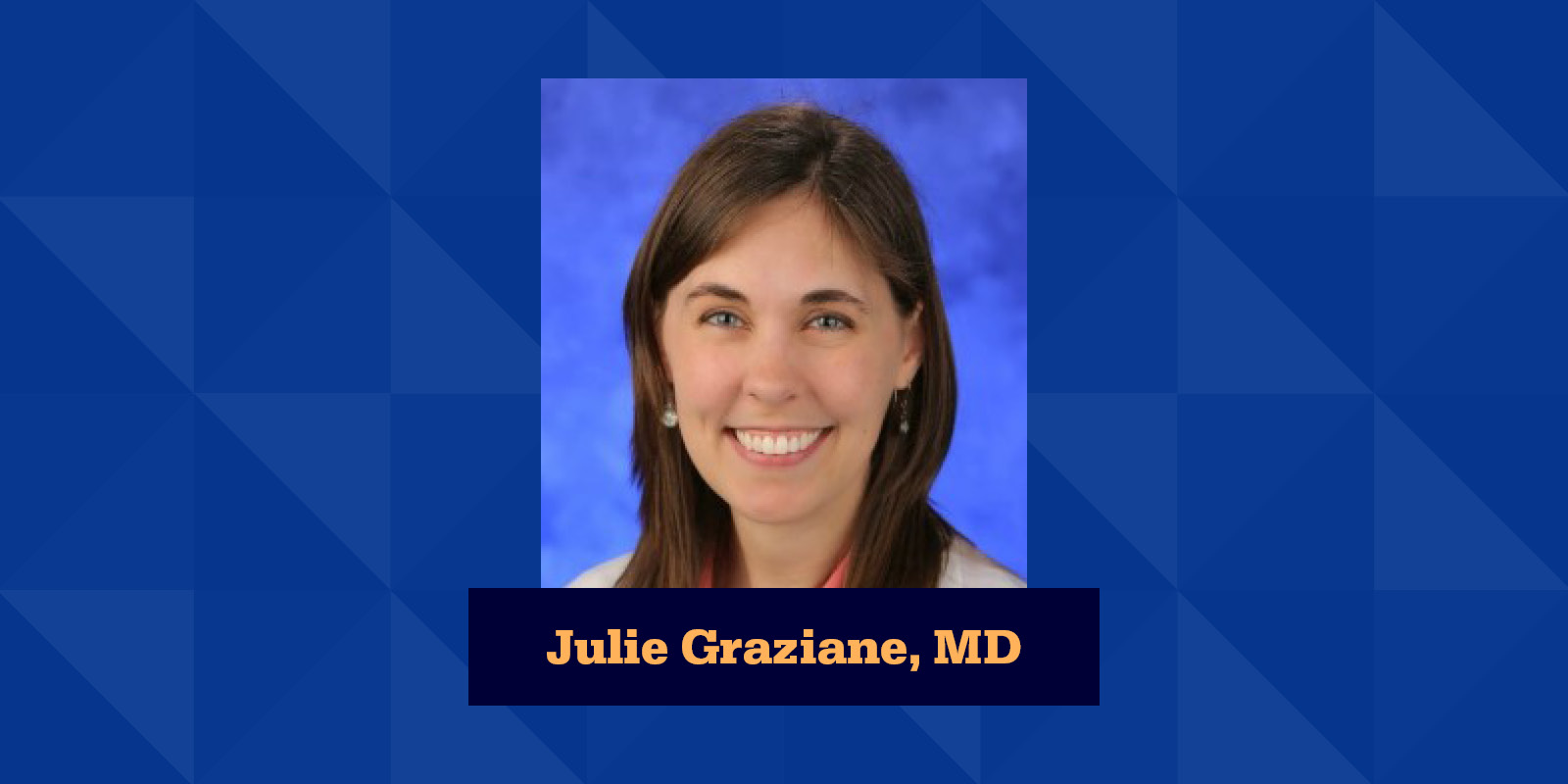
Psychiatric Care for Mature Adults with Dr. Graziane
For the past five years, Julie Graziane, MD, has been an inpatient psychiatrist at Pennsylvania Psychiatric Institute (PPI). Among other responsibilities, Dr. Graziane co-oversees the mature 55+ unit, putting her passion and fellowship in geriatric psychiatry to use.
“I co-oversee the geriatric inpatient unit with another physician, where we see seniors with a variety of illnesses like depression, psychotic disorders, anxiety and mild cognitive impairment complicating their psychiatric presentations. We have a great team of strong social service workers and nursing staff who not only help us to take care of our patients, but also really care about them too.”
Mature adults can have unique issues when it comes to mental illness. Advanced age not only increases the possibility of developing behavioral disorders like Dementia, but physical health issues and memory loss can dramatically affect a mature adult’s mental health. Conditions like anxiety disorder and depression, which are very common in the mature adults, are often overlooked because they are masked by other physical symptoms.
“Patients come in during significantly distressing times in their lives, and I am continually amazed at how the team comes together to treat them and get them back out into the community in a better state of mind. On average, patients stay two weeks for care. We treat the person as a whole, taking into account what situation they will be going back to, and doing what we can to minimize the risk of re-hospitalization. We like getting the families involved as well to help support them.”
Reflecting on the work her team accomplishes at PPI, Dr. Graziane notes: “It’s rewarding working with individuals who are struggling and then be able to see a team come together to help them.”
When asked about how COVID impacted her unit, Dr. Graziane explains, “Personally, it felt a little bit like nothing had changed, when really everything had changed. My day to day didn’t change as I still saw patients in person, but the community resources patients rely on were much more limited. Because patients could not be checked on by community support, we saw more severe stages of illness when individuals were admitted. At-risk individuals with severe mental conditions are at higher risk of having a co-morbidity or getting covid, though we were fortunately able to offer vaccinations to admitted patients at any point during their stay.”
There are three mature adult programs at PPI:
- The Mature Adult Outpatient Psychiatric Program is a short-term treatment option. It is a less restrictive level of care than our Inpatient Program requiring that patients come to the psychiatric clinic or facility only during treatment hours. This allows for easier maintenance of their normal life and commitments. Patients who have completed an inpatient psychiatric program often continue treatment in an outpatient psychiatric program. This program provides therapeutic and diagnostic treatment planning specific to the needs of the individual, including psychiatric evaluations, medication management, individual, group and family therapies.
- The Mature Adult Inpatient Psychiatric Program is designed for adults aged 55 and older who require inpatient psychiatric care due to a mental illness that has significantly disrupted their daily activities. This program also cares for individuals who require assistance with walking or daily activities and those with uncomplicated co-morbid medical issues.
- The Mature Adult Psychiatric Assessment Program provides comprehensive evaluations by a psychiatrist to assess for Dementia and Alzheimer’s disease. Follow up appointments for medication management are provided, as well as support and education for the family.
Apart from the geriatric unit, Dr. Graziane is involved with the education endeavors at PPI. “PPI being a main training site for Penn State, reflects their commitment to education” notes Dr. Graziane, who teaches medical students, adult psychiatry residents, and fellows in geriatric medicine.. “As a training institution, all faculty are motivated to engage learners. I spend most of my time with those in the adult residency program, help to coordinate medical student placements and serve as the Assistant Director of Education at PPI.”
“In my 5 years, PPI has really embraced their identity as a community psychiatric center. We do a fair amount of community outreach; we offer a community psychiatry track now through Penn State’s psychiatry residency program and PPI realizes the important role community psychiatrists play in the psychiatric community as a whole. We are also taking a broader lens when looking at patients now, taking into account social determinants of health. Sometimes they are just as important as the illness when thinking about recovery” notes Dr. Graziane.
Dr. Graziane is also passionate about civic engagement. Read more about her personal goal to increase civic health.
To learn more about the mature adult psychiatric programs at PPI, click here, or call our Admissions Department at: 717-782-6493 or 866-746-2496.

